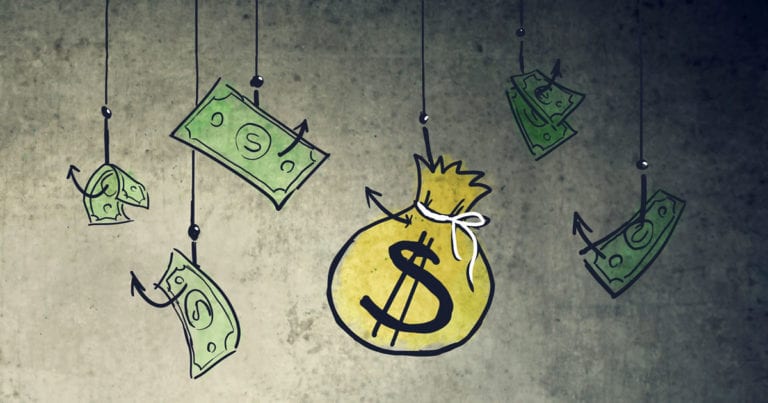Bitter Breakups: Unraveling the Impact of Emotional Abuse in Divorce

“If your heart is broken, let it be broken open.” — Alan Cohen
What is Emotional Abuse?
Divorce can be a painful process for everyone involved. However, when a relationship has been marred by emotional abuse, the effects can be particularly devastating. Emotional abuse is a form of domestic violence that involves the intentional infliction of mental anguish on a spouse or partner. It can manifest in various ways, such as insults, threats, intimidation, controlling behavior, and manipulation. Emotional abuse can lead to serious mental health issues, such as depression and anxiety, and can significantly impact one’s confidence and self-esteem. In this article, we will explore the impact of emotional abuse in divorce and offer some guidance on how to navigate this challenging situation.
Emotional abuse is difficult to define as it can take many forms and vary in severity. However, it is generally understood to be any behavior that is used to control or manipulate an individual’s emotions or actions. This can include:
- Verbal abuse: Examples include name-calling, insults, mocking, and criticizing.
- Non-verbal abuse: This can range from silent treatment to ignoring the victim, rolling eyes, or making gestures to undermine the victim’s confidence.
- Psychological abuse: Manipulating or controlling behavior, gaslighting, brainwashing, threats, and intimidation.
The above behaviors often go unseen by outsiders, and the victim may not realize their actions are abusive. Therefore, the impact of emotional abuse can be long-lasting, leading to mental health issues, and leaving the victim vulnerable and unable to trust others. Victims of emotional abuse should seek help from a professional counselor or therapist to provide them with the emotional support they need and to help them regain control of their lives.
The Impact of Emotional Abuse in Divorce
Going through a divorce is a difficult process, but emotional abuse can make it harder, especially when trying to negotiate a settlement agreement. Emotional abuse can take on different forms, including controlling behavior, intimidation, and manipulation, which can make it difficult for both parties to reach a mutually agreeable resolution.
The impact of emotional abuse on the divorce process can be significant, with heightened levels of conflict, anxiety, and stress for both parties. It can also affect one’s self-evaluated health, as a study published in the Journal of Health and Social Behavior found that emotional abuse can lead to negative health outcomes, including depression and anxiety.
To address the impact of emotional abuse in the divorce process, intervention strategies can be employed. Hiring a trained social worker or counselor who specializes in domestic violence can help both parties work through their emotions and reach a more peaceful resolution. Speaking to a previous marriage success story, one survivor of emotional abuse said, “Getting help was the best decision I ever made. It’s not easy, but it’s worth it. You deserve to thrive in life and love.”
Another helpful intervention strategy is to journal about emotions and daily life, which can help to identify patterns and triggers that perpetuate emotional abuse. Additionally, seeking support from positive family and friends can help alleviate stress and promote emotional well-being.
In summary, emotional abuse can have a significant impact on the divorce process, making negotiations and resolution more challenging for both parties. It is important to address emotional abuse through intervention strategies such as hiring a trained professional, journaling, and seeking support from positive family and friends. Remember, healing and thriving in life is possible after emotional abuse.
Causes of Emotional Abuse in Marriage
Emotional abuse in marriage is a serious issue that affects many couples. It is a pattern of behavior that can include tactics such as name-calling, criticism, manipulation, intimidation, and control. People who experience emotional abuse often feel trapped and powerless. In this article, we will explore some of the causes of emotional abuse in marriage and provide guidance for those who may be experiencing it.
Unhealthy Relationships
Unhealthy relationships can be a tricky maze to navigate, especially when it is with someone who is emotionally or financially abusive. Unfortunately, some people allow themselves to be mistreated for a prolonged period by their abusive partners. This is because emotional and financial dependency is a significant factor in how unhealthy relationships develop and persist.
Some people may become emotionally dependent on an abusive partner because they have been conditioned to believe that they are not worthy of love, respect, or care. They may have experienced abuse in their previous relationships or grew up in negative family environments. This leads them to believe that they cannot find better relationships or that they do not deserve one. As a result, they may cling onto an emotionally abusive partner who belittles and controls their every move.
Other people may become financially dependent on their abusive partners. The abusive partner may control all access to financial resources, leaving the victim to rely solely on them for survival. This can create a sense of powerlessness for victims who feel trapped and unable to escape their situation. Unfortunately, this financial dependency can also make it more difficult to leave the abusive relationship.
Ending an abusive relationship is not a straight-forward decision. Victims often face strong pushback from their partner, which can escalate the abuse to dangerous levels. Victims may fear for their lives, especially if their partner has a history of physical abuse. This fear can make it harder to leave the relationship and lead to severe physical, emotional, and even financial consequences.
If you are in an abusive relationship, it is important to seek help. Speak to a social worker or a therapist who can help you come up with a safety plan and guide you through the process. Do not stay in an abusive relationship out of fear or dependency; there is help available, and it is possible to break free and thrive in life and love.
Previous Marriages and Stressful Life Events
Divorce can be an incredibly difficult and emotional process, especially when emotional abuse is involved. It’s important to acknowledge that emotional abuse can stem from previous marriages or other stressful life events.
Individuals who have experienced a divorce or other stressful life event may be more vulnerable to emotional abuse as they carry trauma and baggage from their previous relationships into a new marriage. As a result, they may have unmet needs and expectations that they hope their partner will fulfill. When these needs and expectations are not met, it can lead to negative family dynamics and even substance abuse or mental health issues, which can ultimately contribute to emotional abuse in a current marriage.
Some of the most common stressful life events that individuals may experience include the death of a loved one, job loss, or financial instability. These events can have a severe impact on a person’s emotional wellbeing and mental health, making them more vulnerable to emotional abuse.
In order to address emotional abuse in a marriage, it’s crucial to acknowledge the impact of previous marriages and stressful life events on an individual’s emotional health. By addressing any past traumas and working towards healing, individuals can develop healthier relationships and prevent emotional abuse from occurring in the future.
Remember, seeking help from a social worker or therapist can be a beneficial tool in the process of healing and moving forward. As the Journal of Marriage and Family states: “positive family experiences and self-evaluated health are important predictors of physical health in adulthood.” You deserve to thrive in life and love, free from emotional abuse.
Unmet Needs and Expectations
Unaddressed issues in a relationship can quickly escalate into toxic behaviors, such as emotional abuse. Whether it’s due to past traumas or simply incompatible needs and expectations, it’s crucial to address any unmet needs before they become toxic. In this article, we’ll take a look at common unmet needs and expectations in relationships and introduce techniques for healthy communication to prevent them from turning into emotional abuse.
First of all, let’s define emotional abuse. It’s a pattern of behaviors that are designed to control and manipulate an individual’s emotional response, causing them to feel afraid, powerless, and inferior. It often stems from unmet needs and expectations that were not addressed in a healthy way and, instead, turned toxic over time.
Here are some common unmet needs and expectations in relationships:
- Emotional support: Feeling heard, understood, and validated by your partner is crucial to building a healthy relationship. If one partner doesn’t feel emotionally supported, they may start to withdraw or become resentful.
- Quality time: Spending uninterrupted time with your partner can foster intimacy and deepen your connection. However, if one partner doesn’t feel like they’re getting enough quality time, they may start to feel neglected or unimportant.
- Validation: Feeling valued and appreciated by your partner can boost your confidence and self-worth. If one partner doesn’t feel validated, they may start to seek validation from other sources or become defensive.
- Respect: Feeling respected and heard in a relationship is a fundamental need. If one partner doesn’t respect the other’s boundaries or opinions, it can quickly turn into emotional abuse.
- Now that we’ve identified some common unmet needs, let’s talk about how to address them in a healthy way. Effective communication is key. Here are some techniques for healthy communication:
- Active listening: Show your partner that you’re truly listening to them by repeating what they’ve said and asking clarifying questions. This can help to avoid misunderstandings and build trust.
- Assertiveness: Speak your mind without being aggressive or passive. Use “I” language to express your needs and feelings without blaming or attacking your partner.
- Respect boundaries: Recognize and respect each other’s boundaries, even if you don’t agree with them. This can help build trust and foster a healthy relationship.
In conclusion, unmet needs and expectations in a relationship can quickly escalate into emotional abuse if not addressed in a healthy way. By recognizing these needs and effectively communicating with your partner, you can prevent them from turning toxic and foster a healthy, fulfilling relationship. Remember, it’s never too late to address unmet needs and work towards building a healthy relationship!
Negative Family Dynamics
When it comes to emotional abuse within a marriage, it’s essential to consider the impact of negative family dynamics. Unfortunately, growing up in a family with a history of domestic abuse or unresolved conflict can leave lasting wounds that can influence our future relationships.
The high levels of stress that often accompany negative family dynamics can also contribute to the development of unhealthy communication patterns. From a young age, individuals within these families may learn to suppress their emotions or resort to aggressive behavior to get their needs met. This can lead to difficulties in communication within a marriage and contribute to emotional abuse.
The impact of substance abuse and mental health issues within the family cannot be understated, as these can exacerbate negative interactions and contribute to emotional abuse in a marriage. For example, if a parent has a substance abuse problem, they may be emotionally unavailable or unpredictable, which can lead to instability within the family. This instability can be carried into future relationships, leading to further emotional abuse.
It’s crucial to acknowledge the impact of negative family dynamics on a person’s ability to sustain healthy relationships. If you or your partner come from a family where there was domestic abuse, unresolved conflict, stress, or unhealthy communication patterns, it’s essential to be aware of those patterns and work together to break them. Remember, healing from the past takes time and effort. But with dedication and the right resources, couples can overcome these challenges and build healthy, happy, and loving relationships.
In the words of Dr. Phil: “We can’t change what we don’t acknowledge.” By acknowledging the impact of negative family dynamics, individuals can take proactive steps to overcome them and build stronger relationships in the future.
Substance Abuse and Mental Health Issues
When we think of emotional abuse in marriage, we often think of an abusive partner who intentionally manipulates, belittles, or controls their significant other. However, substance abuse and untreated mental health issues can also play a significant role in the development of emotional abuse in marriage. These issues can cause problematic behaviors that strongly correlate with emotional abuse, and they can also make it difficult to navigate the divorce process.
Substance abuse, such as addiction to drugs or alcohol, can significantly affect a person’s perceptions and impair their self-control, leading to an abusive partner. When under the influence, a person may become aggressive, verbally abusive, or even violent. They might blame their partner, pick fights, or refuse to acknowledge their own behavior. An abusive partner who struggles with addiction may also use substances as a way to numb their emotions or justify their actions.
Similarly, untreated mental health issues such as anxiety and depression can create a cycle of blaming, belittling, threatening, or controlling behaviors. In these cases, the abusive partner may lash out at their significant other in an attempt to alleviate their own distress. They may accuse their partner of being the source of their problems or refuse to take responsibility for their own actions. In some cases, mental illness can also create paranoia or delusions that exacerbate emotional abuse.
Sadly, when substance abuse or mental health issues are present in an abusive relationship, the divorce process can be particularly challenging. The presence of these mental health issues can increase a party’s stress and anxiety, making it difficult to communicate, collaborate, and make rational decisions. This can lead to a contentious divorce that can be traumatic for both parties involved.
If you or someone you know is dealing with substance abuse or untreated mental health issues in a marriage, it’s essential to seek help. A compassionate therapist, social worker, or addiction specialist can provide resources and support that can help to subdue addiction and manage mental health issues.
It’s crucial to remember that healing from emotional abuse and divorce takes time and effort. But with the proper resources, couples can overcome these challenges and thrive in life and love. As the Journal of Marriage and Family found, a positive family environment can significantly impact self-evaluated health, physical health, and thriving in daily life despite stressful events. If you’re concerned about a spouse who is struggling with addiction or mental illness, seeking professional help can be a valuable first step toward a healthier and happier future.
Effects of Emotional Abuse on the Divorce Process
Going through a divorce is never an easy experience, but it can be particularly challenging when emotional abuse is present in the relationship. Emotional abuse can have long-lasting effects on the victim’s mental health, self-esteem, and overall well-being. In this article, we’ll delve into the impact of emotional abuse on the divorce process and offer some advice and resources for those going through this difficult journey.
Difficulties in Negotiating a Settlement Agreement
Divorce can be a challenging and stressful life event for anyone, but it becomes even more complicated when emotional abuse is involved. Emotional abuse can create an imbalance of power, making it difficult for one party to negotiate a fair settlement agreement. In many cases, the abuse can profoundly impact the victim’s mental and emotional health. When it comes to negotiating a divorce settlement, the situation can become incredibly complicated.
When emotional abuse is present in a marriage, it is common for the victim to have difficulty communicating their needs and wants to their partner due to fear or low self-esteem. Additionally, the abuser may try to control or manipulate the situation in order to create further distress for the victim. This can mean there is an imbalance of power in the negotiation process, making it difficult for the victim to advocate for themselves.
Another issue that can arise in negotiating a settlement agreement in a divorce involving emotional abuse is getting the abusive partner to agree to a fair settlement. Abusers may be unwilling to give up control or may attempt to use the negotiation process as another way to exercise their controlling behavior. This can make it challenging for the victim to achieve a settlement that is satisfactory for both parties.
Social worker Sandy, who specializes in helping survivors of emotional abuse, explains that “emotional abuse can affect how a victim communicates, which can then impact the negotiation process in a divorce. It can be difficult for someone who has experienced emotional abuse to communicate effectively, especially when they are feeling threatened or intimidated.”
For those who have been the victim of emotional abuse, it is important to seek the help of a trusted therapist or counselor. These professionals can help you build your self-esteem and control your emotions during the negotiation process. They can also provide support and guidance as you navigate the complexities of the divorce process.
If you are dealing with emotional abuse in your marriage and anticipate post-divorce financial stability, it may be helpful to consider seeking legal advice. A competent divorce lawyer can be helpful in navigating the levels of divorce and can ensure that your rights are protected during the negotiation process.
In the Journal of Marriage and Family, a study that focused on self-evaluated health among divorced individuals suggested that the impact of emotional abuse in divorces often affects one’s physical health. Therefore, it is essential for those experiencing emotional abuse to seek professional help in order to limit further long-term damages.
In conclusion, when emotional abuse is present in a marriage, it can complicate the divorce process, making it difficult to negotiate a fair and satisfactory settlement agreement. However, with the assistance of a therapist, counselor, or competent divorce lawyer, you can build your self-esteem and navigate the complexities of the divorce process effectively. Remember that healing and recovery are possible, and you will thrive in life and love again.
Higher Conflict Levels Between Parties
A divorce is never easy to navigate, but when the conflict levels between the parties involved are high, it can be especially challenging. The emotional toll of a divorce can be devastating, and when conflict is added into the mix, it can make the process even more difficult.
Divorces involving emotional abuse often result in higher levels of conflict, making it particularly tough to negotiate a settlement agreement. The power imbalance can make it hard for one party to advocate for themselves, and the abuser may attempt to control or manipulate the situation further, prolonging the process.
Understanding how to navigate the emotional terrain of a divorce when conflict is high is important. One essential strategy is to seek the help of a trusted therapist or counselor. A professional can help you manage your emotions during the negotiation process and provide support and guidance.
It’s also crucial to keep open communication lines between parties and set clear boundaries. This can help limit conflict between parties, improve communication, and reduce stress levels. Maintaining calm and civility in your interactions is essential, as this can help reduce the negative impact of emotional abuse in divorce.
Another strategy that can be employed to manage conflict levels is to work with a competent divorce lawyer. They can help you navigate the complexities of the divorce process, negotiate on your behalf, and ensure your rights are protected.
In the end, it’s important to remember that divorce is a challenging and emotional process, particularly when conflict levels are high. However, working with professionals, maintaining healthy communication, and employing the right strategies can help reduce the negative impact of emotional abuse and conflict in divorce. As social worker Sandy advises, “Remember to focus on your own healing during this time and seek the help you need. You deserve to thrive in life and love, free from the negative impact of emotional abuse.”
Increased Anxiety and Stress During Proceedings
Going through a divorce is never easy, but when emotional abuse is involved, it can make the process even more challenging. One of the most significant impacts of emotional abuse during a divorce is increased anxiety and stress levels for the victim. Invalidating comments and constant questioning of their reality can break down the victim’s confidence, leading to severe doubts and uncertainty.
During divorce proceedings, an abuser may use manipulation tactics to control and further distress their victim. They may try to blame the victim for the failed marriage, gaslight them into questioning their judgment, or attempt to turn others against them. These actions can cause severe emotional turmoil, leading to higher stress and anxiety levels.
If you’re going through a divorce involving emotional abuse, seeking professional help and support to manage the emotional pressure is essential. Seeking the help of a trusted therapist or counselor can be highly beneficial in navigating the process while managing your emotions. They can provide support, and guidance, and help you develop coping strategies to manage anxiety and stress levels.
It’s also crucial to remember to maintain boundaries and communicate clearly with your abuser during the divorce proceedings. This can help limit conflict, reduce stress levels and improve communication. Staying calm and focused can help you manage the situation better and reduce the impact of emotional abuse.
In conclusion, emotional abuse during divorce can cause increased levels of anxiety and stress for the victim. It’s important to seek professional help and support and maintain clear communication with your abuser to limit conflict during the proceedings. Remember that there is light at the end of the tunnel; with the right support and guidance, you can come out of this process stronger and more resilient.
Lower Self-Evaluated Health for Both Parties
Divorce is a challenging experience, and when emotional abuse is involved, the impact on both parties can be even more severe. The effects of emotional abuse can extend beyond the emotional aspect of the relationship, influencing the self-evaluated health of both parties involved.
Studies have shown that emotional abuse can have negative impacts on physical and mental health. According to the Journal of Health and Social Behavior, individuals who experienced emotional abuse had lower self-reported health, including physical health. Moreover, the Journal of Marriage and Family found that emotional abuse can lead to decreased mental health and increased anxiety.
The damaging effects of emotional abuse on one’s overall health cannot be ignored. It’s crucial for both parties to prioritize their well-being during the divorce process. Seeking therapy or joining a support group can help both parties to move forward. A trusted therapist or counselor can provide support, guidance, and help you develop coping strategies to manage the stress and anxiety levels.
Choosing to focus on physical health is also essential. Exercise, a healthy diet, and enough rest can help you deal with the emotional impact of the divorce. Physical activity, in particular, can help improve mood and relieve anxiety.
Divorce can be a stressful time, and when emotional abuse is a factor, it can be even more complicated. It’s vital to prioritize your mental and physical health during the process, as it can affect your post-divorce life tremendously. Remember that healing takes time, but with the right support, you can move forward and build a new, healthier life.
Intervention Strategies to Address the Impact of Emotional Abuse in Divorce
Divorce is never an easy experience, and experiencing emotional abuse during the process can add an additional layer of complexity and stress. According to the National Domestic Violence Hotline, emotional abuse can be just as damaging as physical abuse, and even more challenging to recognize and address. If you are considering divorce or are in the midst of the process and have experienced emotional abuse, it’s essential to take steps to protect yourself and ensure that you are prioritizing your safety and well-being.
The first step in addressing the impact of emotional abuse in divorce is to prioritize safety. If you feel unsafe in any way, it’s essential to seek support and resources immediately. This may include working with an experienced divorce attorney who can help you navigate legal proceedings and take steps to ensure your safety. In addition, you may want to consider seeking out support from a therapist or counselor who understands the dynamics of emotional abuse and can provide guidance and help you develop coping strategies to manage stress and anxiety.
Creating a safety plan is another essential step in protecting yourself from emotional abuse during divorce. This may involve minimizing contact with your abusive partner, securing a safe living environment, and developing strategies for responding to potential triggers or unsafe situations. The National Domestic Violence Hotline provides a wealth of resources and support for individuals who are experiencing emotional abuse and can help you develop a safety plan that meets your specific needs.
In addition to taking steps to ensure your safety, it’s important to prioritize healthy communication and co-parenting when possible. Co-parenting services and mediation can be invaluable in reducing conflict and promoting healthy communication between you and your spouse. This can help to reduce the risk of further emotional abuse and support a smoother, more amicable divorce process.
Finally, educating legal and social work professionals on the dynamics of emotional abuse and the best practices for addressing these issues in divorce proceedings is essential. This may involve working with a qualified therapist or counselor who can provide training and education on the impact of emotional abuse and its effects on individuals and families. By working together to raise awareness and promote best practices, we can create a safer, more supportive environment for individuals who have experienced emotional abuse during the divorce process.
Remember, healing from emotional abuse takes time, but with the right support and strategies in place, it is possible to move forward and thrive. As one survivor shared, “It is important to vocalize and reframe the self-blame from questioning own worthiness and value to trusting own intuition and empowerment.” You deserve to feel safe, supported, and empowered as you navigate the divorce process and move forward with your life.
FAQs
What are the types of emotional abuse?
Emotional abuse, also referred to as psychological abuse, can manifest in numerous ways. Some common types include verbal abuse, such as yelling, name-calling, and degrading insults. It also encompasses belittlement or constant criticism designed to make the victim feel inferior or worthless. Manipulation and control, which involve dictating a person’s actions, decisions, or social interactions, also form part of emotional abuse. Isolation from friends and family is another technique abusers use to exert control. Other types of emotional abuse include intimidation and threats, excessive jealousy and possessiveness, shaming, and withholding affection or emotional support as a form of punishment.
What is the cycle of emotional abuse?
The cycle of emotional abuse typically follows a pattern of four stages: tension building, incident, reconciliation, and calm. During tension-building, stress builds over common domestic issues like money, children, or jobs. Next, the incident phase is marked by outbursts of abusive incidents which could be verbal, emotional, or physical. After the abuse has occurred, the reconciliation phase begins, often with the abuser apologizing, making promises to change, or even blaming the victim. The final stage is a calm period, a kind of “honeymoon” phase where the abuser behaves lovingly and kindly, giving the victim hope that change is possible. However, the cycle often repeats itself without intervention or treatment.
What are the early warning signs of emotional abuse?
Early warning signs of emotional abuse can be subtle and might often be overlooked or dismissed as insignificant. These signs may include a partner frequently criticizing or belittling you, controlling where you go and whom you see, dictating your decisions, or invading your privacy. They might constantly accuse you of being unfaithful without reason, or display excessive jealousy and possessiveness. Early signs can also include undermining your self-esteem, making you feel guilty, or gaslighting you — manipulating you into doubting your own memories, perceptions, or judgments.
What are the side effects of emotional abuse?
The side effects of emotional abuse can be severe and far-reaching. Victims may experience mental health issues such as depression, anxiety, and post-traumatic stress disorder (PTSD). They might also have a decreased sense of self-worth, low self-esteem, or an inability to trust others. Emotional abuse can also lead to difficulty forming and maintaining relationships, feelings of isolation, and difficulty in setting boundaries. Physical health problems such as insomnia, chronic pain, or weight changes may occur due to the stress caused by the abuse.
How does emotional abuse affect a person?
Emotional abuse can profoundly impact a person’s mental and physical well-being. It often leads to low self-esteem, self-doubt, anxiety, depression, and feelings of helplessness. Victims may also experience feelings of shame or guilt, chronic fear, and difficulties in concentration. It can also result in harmful behaviors like self-harm or substance abuse. Over time, it can cause victims to withdraw from social activities, leading to isolation and loneliness. The experience can affect their ability to trust others, impacting their relationships and interactions.
How does emotional abuse affect future relationships?
Emotional abuse can have long-lasting effects on a person’s ability to form and maintain healthy relationships in the future. Victims may struggle with trust issues, fear of intimacy, or difficulty setting and respecting boundaries. They may develop patterns of codependency or, conversely, struggle with feelings of isolation and withdrawal. The fear of repeating the cycle of abuse can cause anxiety and hesitance in entering new relationships. Also, unresolved trauma can sometimes lead to a risk of falling into relationships with similar dynamics, as the patterns of abuse can feel familiar.
Is emotional abuse grounds for divorce?
Many jurisdictions recognize emotional abuse as a form of domestic abuse, and it is considered a valid reason for divorce under the category of “cruel and inhuman treatment”. Laws vary by location, so one should consult with a local attorney or legal expert to understand the specifics. However, it is generally accepted that no one should have to endure an abusive situation, including emotional abuse. For safety and support, it is also advisable to reach out to local domestic violence organizations when dealing with such circumstances.
Life Goes On
Dr. Elisabeth Kübler-Ross said of mourning that “it usually ends when people realize that they can live again, that they can concentrate their energies on their lives as a whole.” As the healing process continues, you will learn to cope with the challenges, integrate the loss, and begin to rebuild a new life, forgiving what might have been and accepting what is. The resilient human spirit will help you believe again that life is worth living and, despite losses, life goes on.
“When I ‘let go,’ I grow and live for the future, without regrets about the past.” –Louise Hay
Resources
- The National Domestic Violence Hotline: Provides immediate support for victims of any form of domestic violence, including emotional abuse. They can help create safety plans and connect individuals with local resources.
- RAINN (Rape, Abuse & Incest National Network): The nation’s largest anti-sexual violence organization. They offer a multitude of resources for victims of abuse, including emotional abuse.
- The American Bar Association: While not specifically for emotional abuse, the ABA can provide resources for finding legal help when preparing for a divorce.
- Women’s Law: Provides legal information and resources for women living with or escaping domestic violence or sexual assault.
- Love is Respect: Offers support for young adults and teenagers who may be experiencing dating abuse, including emotional abuse.
- National Resource Center on Domestic Violence: Provides a wide range of free, comprehensive, and individualized technical assistance, training, and resource materials.






